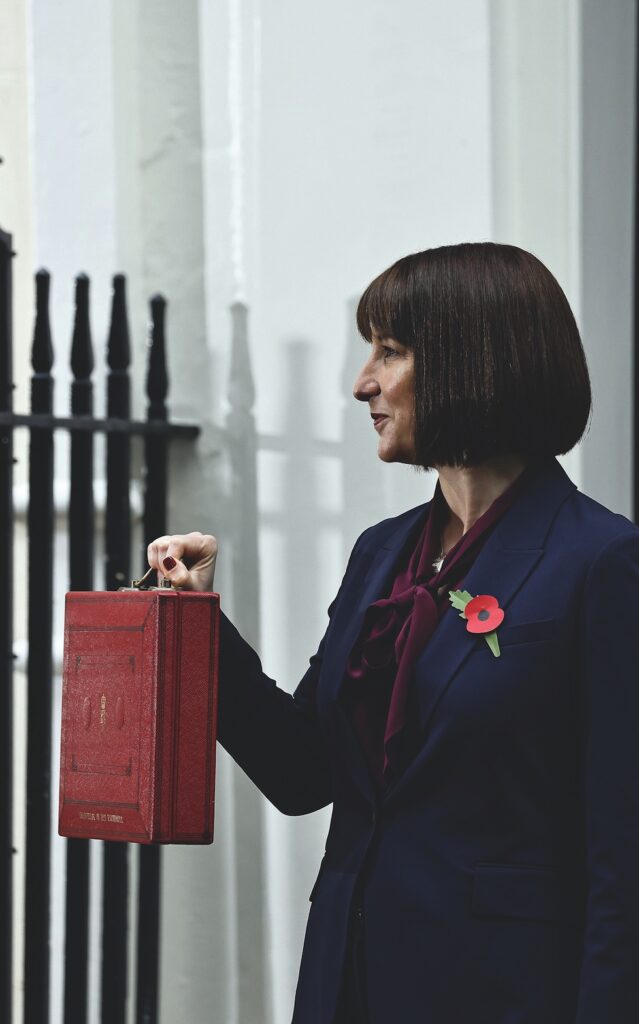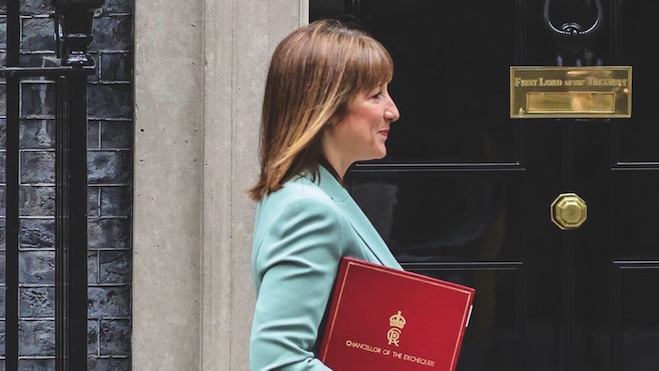Chancellor boosts NHS spending but funding for reform still in doubt

MiP and NHS leaders welcomed a significant boost to NHS funding in the October Budget but warned that much of the new money could be swallowed up by existing commitments such as staff pay, rising maintenance costs and trust deficits.
In her first Budget on 30 October, Rachel Reeves announced a £22.6 billion increase in day-to-day NHS spending in England with £3.5 in additional capital investment for this year and next. The spending increases, funded by a mixture of higher borrowing and new taxes, mean NHS spending is set to grow by 3.8% in real terms — close to the long-term average since the 1950s, but well above the levels seen over the last 15 years.
MiP chief executive Jon Restell said: “While these funding increases will not solve the NHS’s problems overnight, MiP believe it’s a step in the right direction and provides a good foundation leading into the ten year plan due in the spring.” But it remained unclear, he added, how much of the new investment would be swallowed up by “existing commitments such as staff pay”.
Reeves described the funding package as a “downpayment” on the ten year plan, hinting that further investment plans may be unveiled in next year’s spending review. “This is the largest real-terms growth in day-to-day NHS spending outside of Covid since 2010,” she said.
The 11% boost to NHS capital spending announced by Reeves will take investment to a record £13.6 billion by the end of 2024-25. It includes an extra £1 billion earmarked for hospital repairs and a £100 million pot for refurbishing GP premises, as well as £2 billion more for investment in technology.
But with the maintenance backlog for NHS buildings approaching a record £14 billion and many NHS organisations expected to be in deficit this year and next, experts warned that much of the new money could be swallowed up by existing commitments. Staff pay increases are also expected to be higher than NHS England has budgeted for — partly due to the chancellor’s increase in the minimum wage above the entry level for NHS pay — and it remains unclear how the government will fund its long-term ambitions to shift care from hospitals to community services and to invest more in prevention.
“The NHS is facing rising financial deficits, a growing and aging population, rising cost pressures, and endemic staffing shortages and performance woes,” said King’s Fund policy director Siva Anandaciva. “This is a Budget that will help keep the show on the road for health care services and deliver some improvement, but it is unlikely to deliver a step change in access or quality of care.”
Much now depends on the spending review, expected in spring 2025, which will set spending levels for 2026-27 and beyond. “The end of the chancellor’s speech is rarely the final word on health and care funding,” Anandaciva added.
The Conservatives criticised the government not keeping its promise to tie additional NHS funding to reform. Commenting on the Budget, then shadow health secretary Victoria Atkins said: “This eye-watering budget has no plans for NHS reform, for winter preparedness or for social care. GPs and dentistry are glaringly absent. Taxpayers have been saddled with the highest tax burden in our country’s history with no idea what we’re paying for.”
Related Stories
-

Confusion and lack of cash delays ICB job cuts
At least a dozen Integrated Care Boards have paused or postponed redundancy programmes because of a lack of funding and continuing confusion over transferring staff to other NHS organisations under government reform plans.
-

Funding settlement a “good turn” says NHS England chief—but is it enough?
The chancellor, Rachel Reeves has unveiled what she called a “record cash investment” in the NHS in England as part of the government’s spending review. The settlement will see NHS spending rise by around 3% above inflation during this parliament.
-

Budget 2024: Sticking plaster or turning point?
The NHS has been starved of investment for more than a decade, with results that are plain to see. Is Rachel Reeves’s boost to public investment enough to stop the downward spiral and deliver the government’s ambitions for health and care? Craig Ryan reports.
Latest News
-

Government proposal for sub-inflation pay rise “not good enough”, says MiP
Pay rises for most NHS staff should be restricted to an “affordable” 2.5% next year to deliver improvements to NHS services and avoid “difficult” trade-offs, the UK government has said.
-

Unions refuse to back “grossly unfair” voluntary exit scheme for ICB and NHS England staff
NHS trade unions, including MiP, have refused to endorse NHS England’s national voluntary redundancy (VR) scheme, describing some aspects of the scheme as “grossly unfair” and warning of “potentially serious” tax implications.
-

Urgent action needed retain and recruit senior leaders, says MiP
NHS leaders are experiencing more work-related stress and lower morale, with the government’s sweeping reforms of the NHS in England a major factor, according to a new MiP survey.